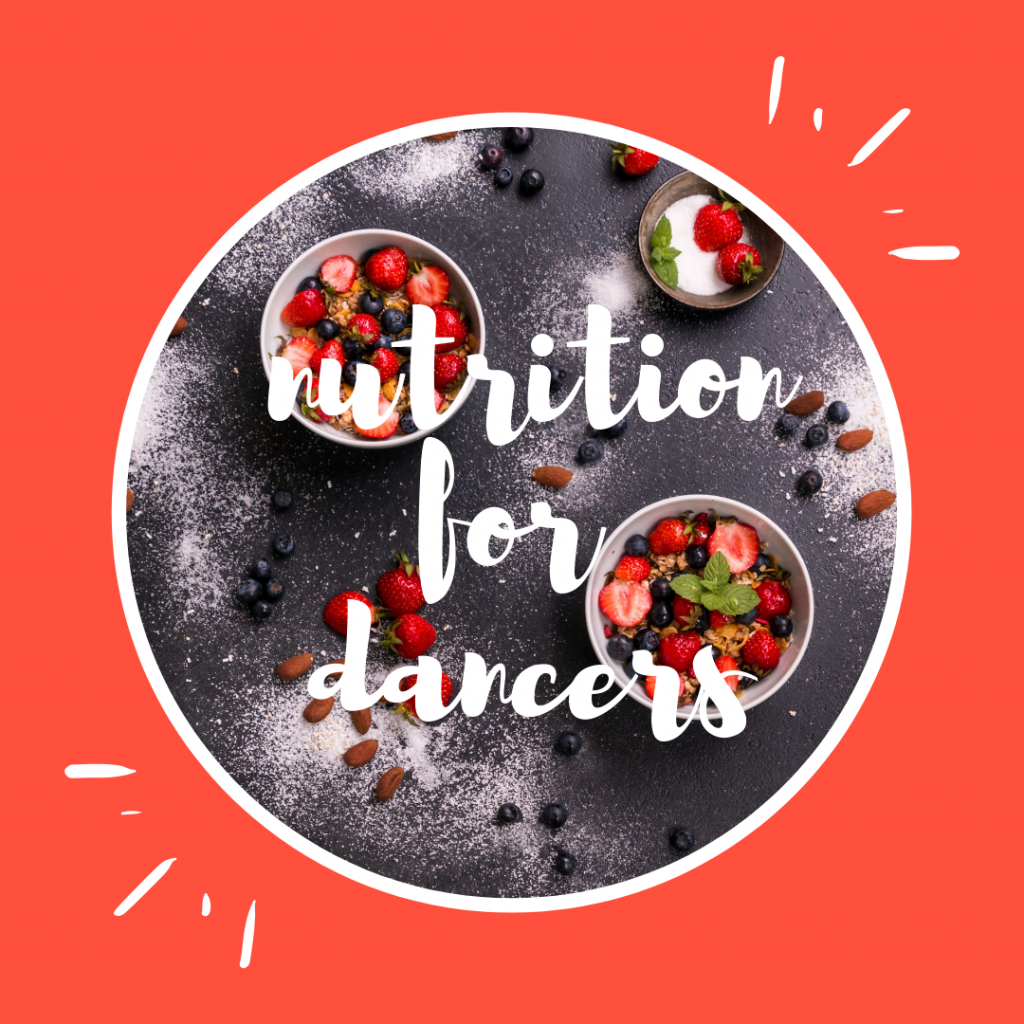March is National Nutrition Month – which we believe is an important and underrated aspect of the dancer lifestyle. Dancers don’t often discuss what they eat in a day the way other athletes might. Additionally, talking about nutrition can be taboo, given professional dance culture’s traditional emphasis on being tall, lean and thin.
Thankfully, this has begun to change in recent years, but there is still much more to be done when it comes to highlighting the importance of dance in nutrition. Many dancers are at higher risk for micronutrient deficiencies, since many aren’t eating enough for the amount of activity they do. These deficiencies can put dancers at risk, since low levels of micronutrients like vitamin D and calcium can weaken bones, leaving dancers vulnerable to injury. What’s more, ballet dancers are at special risk of developing disordered eating habits, with anorexia nervosa claiming a 16.4% prevalence rate among the ballet community.
So, how can dancers stay healthy, fuel their bodies and avoid developing a problematic relationship with food? Below, we share some practical tips for BU Dancers in honor of National Nutrition Month!
- Calculate your body’s calorie needs. These may be higher than you think, since dancers can burn as many as 500-600 calories in a single 90-minute rehearsal. (Source)
- Eat plenty of complex carbohydrate. Despite what you may have read online, your body needs carbs for energy. If you are an athlete, more than half your plate should comprise carbohydrates – like whole-grain pasta or fruit – at every meal. (Source)
- A vegetarian or vegan diet can be healthy for dancers. Just make sure to pay special attention to macro- and micro-nutrients like protein, calcium and Vitamin D. Some nutrients, like vitamin B12, may require you to take a supplement if you are avoiding all animal products. (Source)
- Know the signs of disordered eating. The dance community’s traditionally strict ideals of the “perfect body” can lead some dancers to develop unhealthy body image and relationships with food. If a friend shows signs of disordered eating, such as strict black-and-white rules about food or deliberately skipping meals to control body weight, encourage them to talk to a health professional to get the help they need to feel better. (Source)
- Emphasize fluid intake. More than 70% of our bodies comprise water. Sweating during dance rehearsals can cause you to lose much of your body’s water supplies. Rehydrate with plenty of water throughout the day, and consider a sports drink like Gatorade to replenish electrolytes while dancing. (Source)

